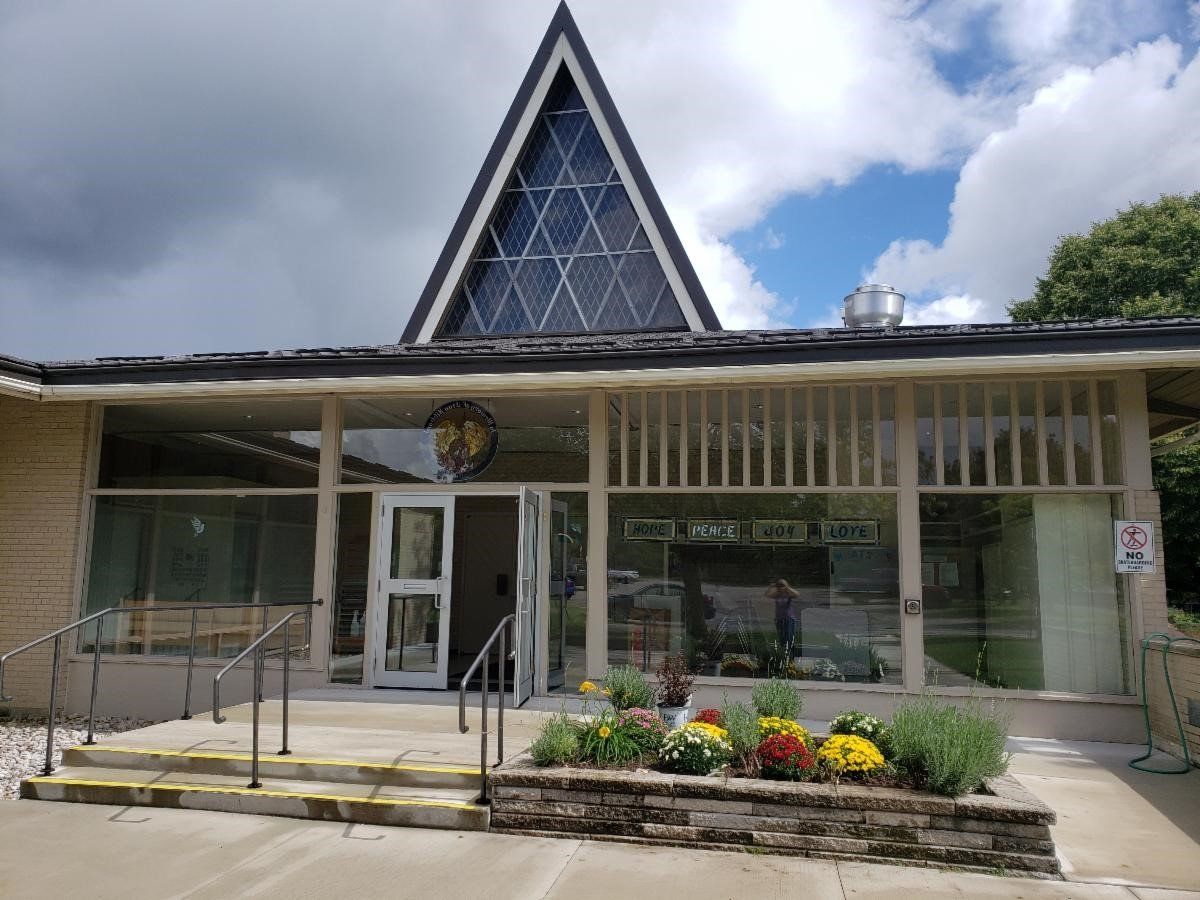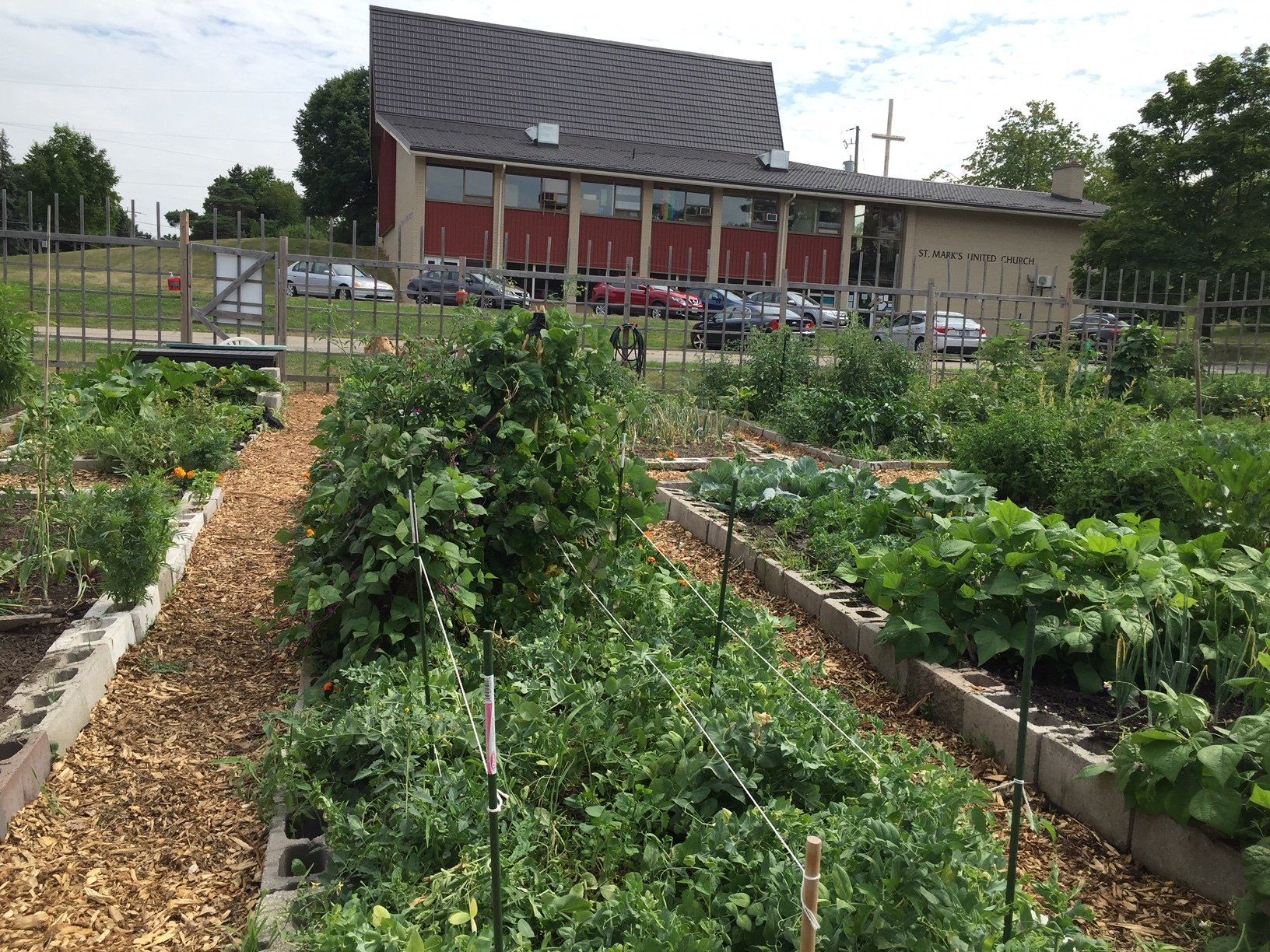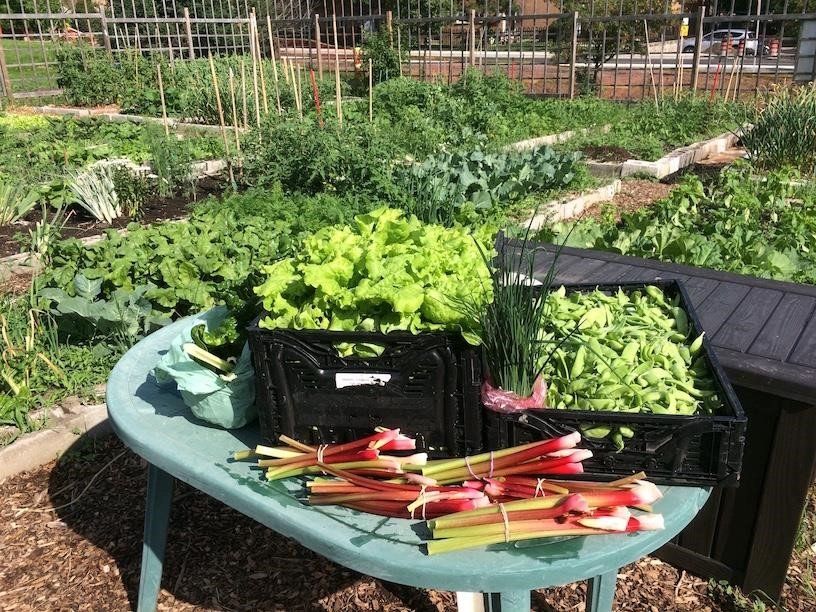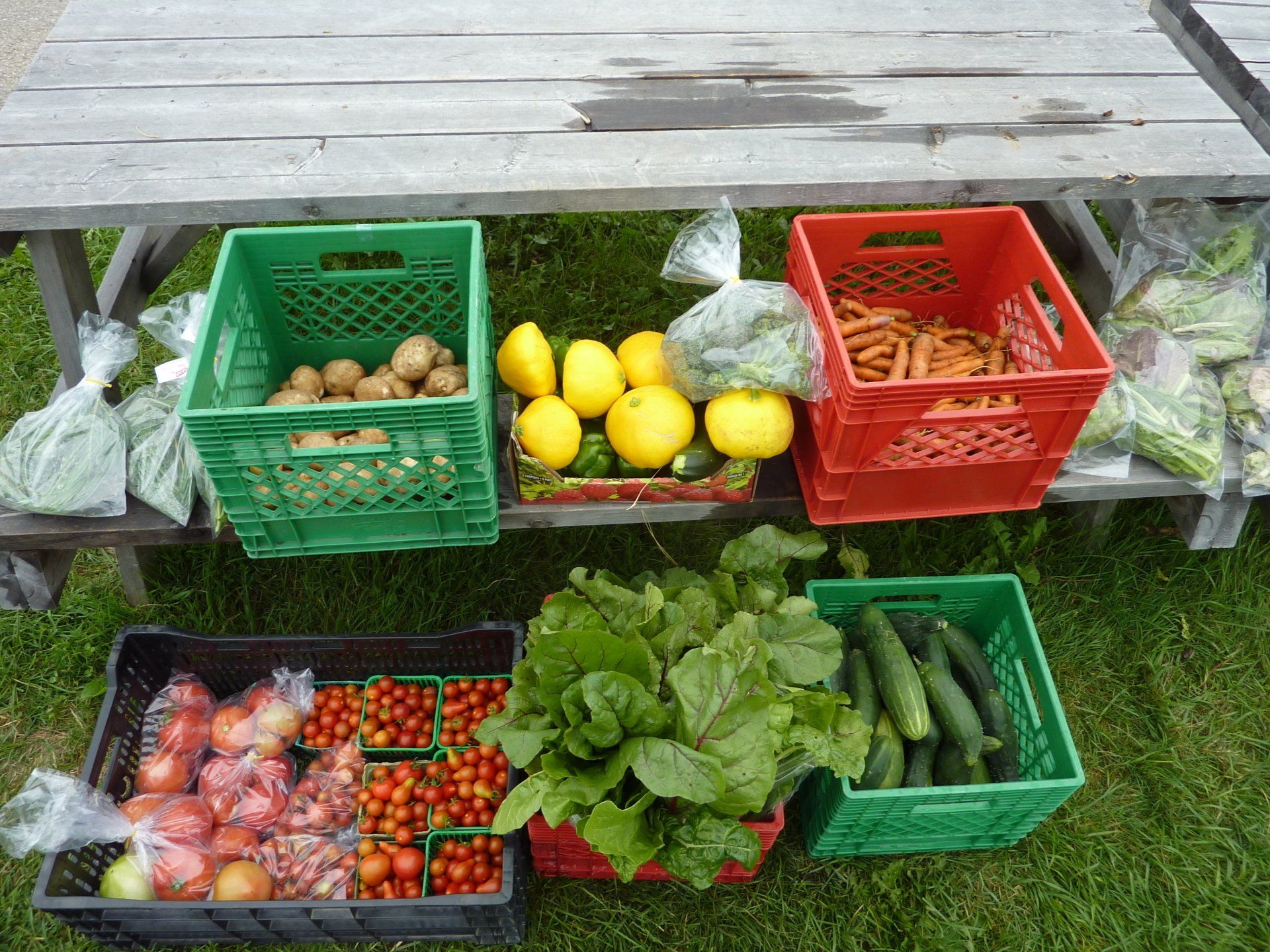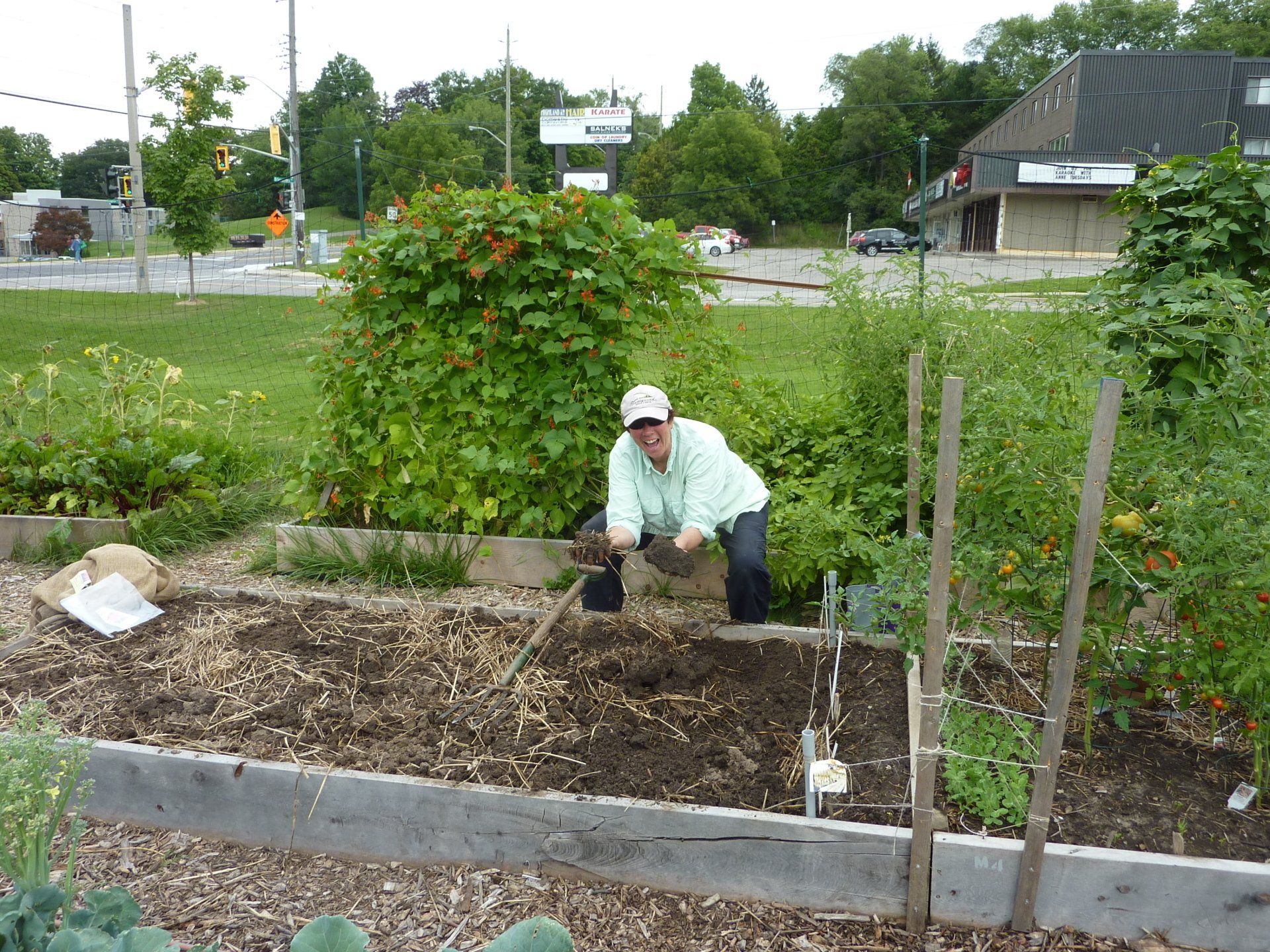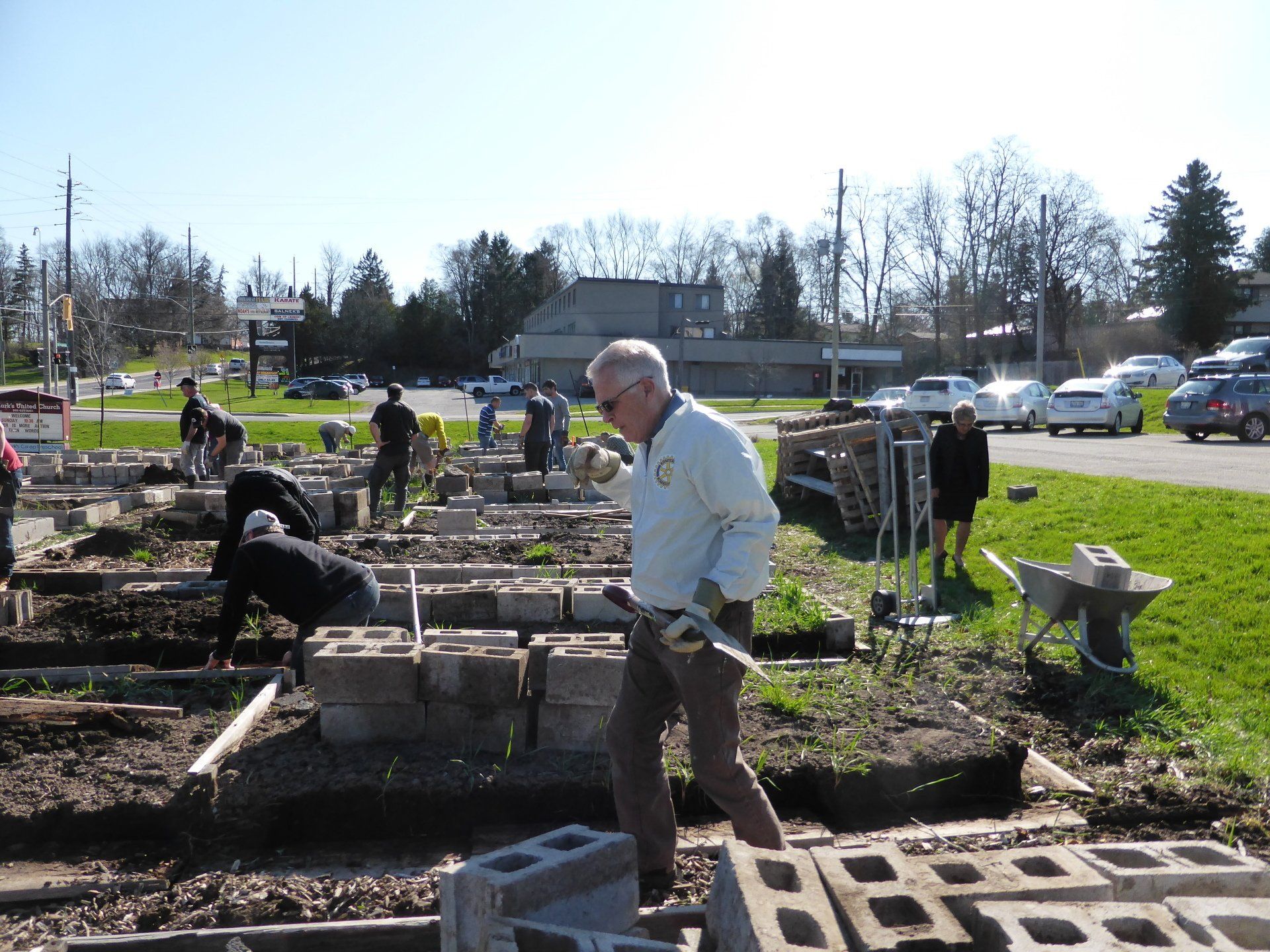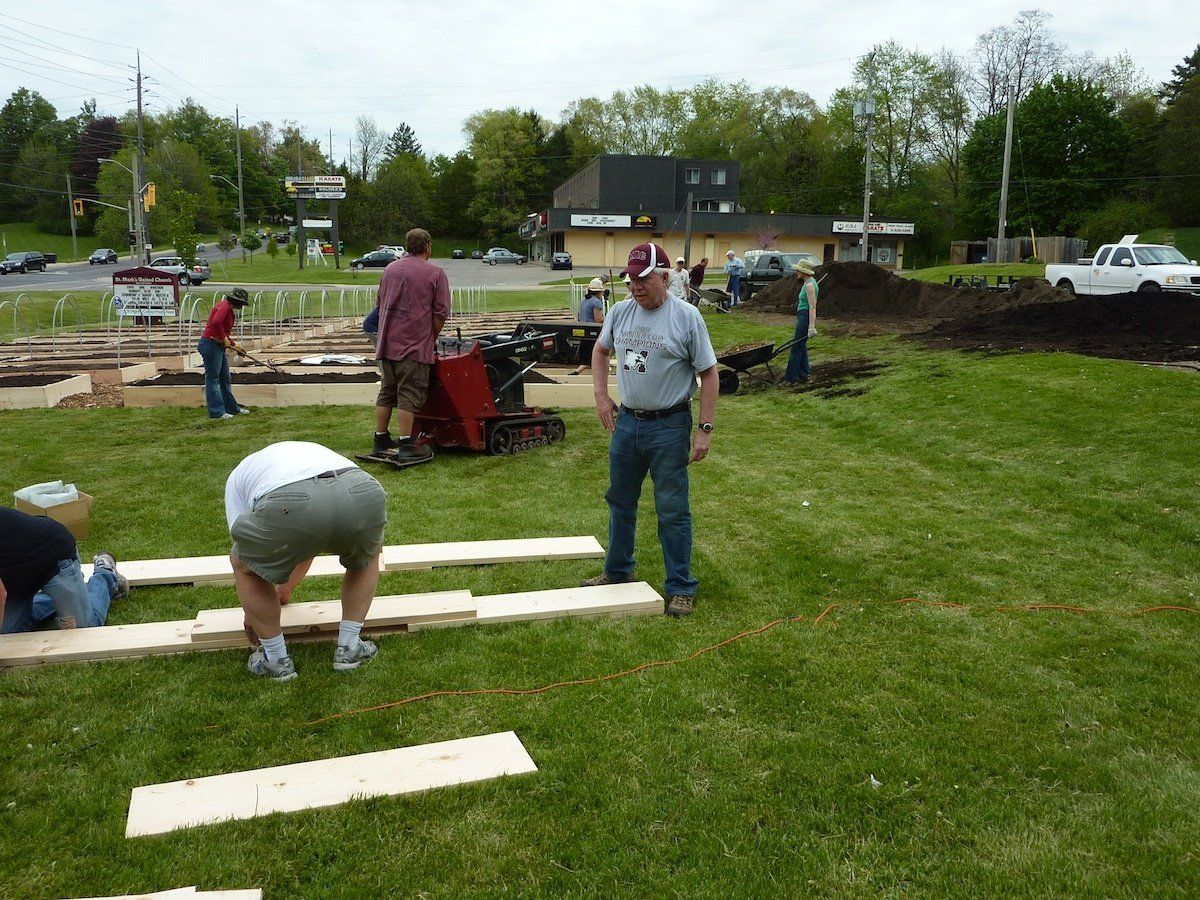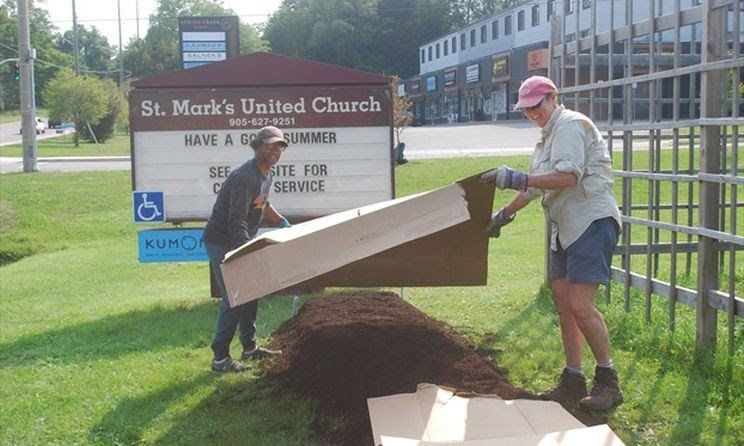Community Garden

Dave Carson, a member of Dundas in Transition and also a member of the Dundas Valley Sunrise Rotary Club, heard of other groups building community gardens with the goal of growing fresh produce for Food Banks. Food Banks traditionally stock and distribute non perishable packaged food and supplies of fresh produce are badly needed. Dave took the idea for a community garden to his Club and found support. In a fairly dense urban area, obtaining suitable land was not easy until St. Mark’s heard of the need and offered not only land but also access to a key resource for the garden – a water supply. Thus the garden project could be launched.
The garden was advertised to the community as having three goals – to grow food for the Food Bank, to learn more about gardening and to build community. 50% of the garden was to be grown for the local Food Bank and 50% was to be made over to local residents for their own use.
The community plots were quickly over-subscribed, illustrating the demand. A local expert offered to give an introductory lesson on seeding, planting, and composting. Rotarians and community members learned how to make “compost tea” and the process of companion and succession planting. Goal Number 2 and 3 were already taking shape!
On a fresh day in early May of 2012, Rotarians and community members prepared 48 garden plots. The garden design was based on raised beds, which make most steps of planting, watering and weeding easier. Dundas Valley Sunrise Rotary provided funds for the beds, the local municipality provided truck loads of compost and wood chips for pathways, and Roger Stewart, a Sunrise Rotary member in the irrigation business, ran water lines and taps to the beds. After a morning’s work the garden was ready for planting.
Over the next few weeks, observing the local frost days, the garden was planted with potatoes, squash, cucumbers, sweet and hot peppers, beets, carrots, leeks, onions, zucchini, tomatoes, beans, radishes, brussels sprouts, cabbages, lettuce, chard and several herb varieties. Within a few weeks, early crops were ready and throughout the season weekly harvests were taken to the Food Bank. Goal Number 1 was met.
Despite fears of vandalism and animal damage, no big issues were encountered (deer netting worked initially but was replaced the next year!). Gardeners learned how to deal with pests, watering, mulching and other skills. Each week from mid-June to October produce was harvested and taken to the Food Bank. Generally this food was distributed by the Food Bank on the same day - far fresher than food from the grocery store. The Church attracted new members and residents of a local community housing project found a place to garden.
The garden was publicized through a newsletter to garden members, a large sign posted for passing motorists and the local newspaper printed several articles giving credit to the Dundas Valley Sunrise Rotary Club and St. Mark’s for their efforts. Overall there has been considerable community interest and positive comments generated by the garden which have reflected well on both the club and the church. The goal of providing fresh food to the Food Bank has been met, as have the community engagement and education goals. This initiative also connects very well to other community actions such as St. Mark’s community kitchens, monthly community meals, and community cooking lessons – all of which contribute to increased community food security.
Pollinator Border Updates
Rain or shine, Saturday, October 2 at 9:00 a.m. will be planting day, and with 100 feet to fill, we have lots of space for native pollinator plants. If you have plants to share, it would be greatly appreciated if you could bring them to the church on Friday evening between 5:00 and 7:00, or Saturday just before 9:00. If you need someone to pick yours up, call Norma at 905-627-7142.
Dundas and surrounding areas are extremely rich eco-systems within the Carolinian Corridor. Many of the vital species have diminished in population or are threatened. By attracting a wide variety of native species, we are also supporting pollinators for the Community Garden alongside.
Our border will be divided into five foot sections, and a plan has been developed. One section will be left vacant for a demonstration of how to successfully grow and care for plants from seeds, immediately following the planting
During that morning, Action 13 Net Zero Waste will be collecting empty garden pots so they will be recycled, rather than end up in the landfill. They too can be brought to the church on the Friday, or Saturday morning. Their group will have a table set up to receive pots and give out information about their projects. They are also organizing a children’s nature activity so children are encouraged to come. They have generously donated a sign for our border that says “Pollinators Welcome”, which will be placed in front of our border.
Finally, the Action 13 Seed Library, Seeds of Change, will be introduced to the garden. This will be in the style of the little book exchange libraries that have sprung up in communities, but instead of books, folks can take seeds they want or leave seeds they don’t need. It will be regularly monitored by volunteers.
It will be a busy, but fun day, so come and enjoy it!


